Whether you are a first-time traveller or seasonal adventurer, you are likely to come across many travel scams when exploring the world. Unfortunately, this is just something that happens. I’m sure we all have our own stories! But you need not let it ruin your trip.
The best way to protect yourself against these travel scams is by researching before your trip. If you know what to watch out for, you will be far less likely to fall for it. Remember, once on the road, talking to other travellers is a great way to find out about others experiences and the places or scams to avoid. You can also check the latest safety advice on your Gov travel website.
So here are some of the most common travel scams around the world:
Being distracted
Pickpockets will often try and distract tourists while an accomplice will try and steal your bag. They could distract you by talking to you, pretending to need help with something, ‘accidently’ bumping into you, anything that draws your attention away. While this is happening, someone else will try and steal your bags. A common one in Europe is that they will spill something on your clothes to make you flustered.
To deal with this, always be aware of where your bag is. If you notice yourself becoming distracted, or someone trying to get your attention, make sure you hold your bag close and make a point of bringing it to your front where you can see it. This will make it harder for the other person to snatch it.
Lost tourists
This scam preys on lost tourists (which is why you should always look as though you know where you are going, even if you don’t!). This happened to me in Morocco.
A really friendly old local man saw that I was lost and offered to show me the way to the main market square. He said it was ‘just around this corner’ but when we had turned several corners and were headed into small local streets, I knew there was a problem. We ended up at his shop where he tried to sell me rather expensive carpets.
This is a common scam and can be tricky to get out of. I eventually bought some cheap jewellery from him before quickly hailing down a taxi and getting out of there.
To help with this, when you are lost, always head into a shop to ask for directions. If this is not possible, then you may have to trust your instincts. Not all locals are the same, I once had a super old Korean lady walk with me for 15 minutes to send me in the right direction. But if you have any doubts, it is best to use the taxi number (you should have) in your phone and go to a place you recognise.
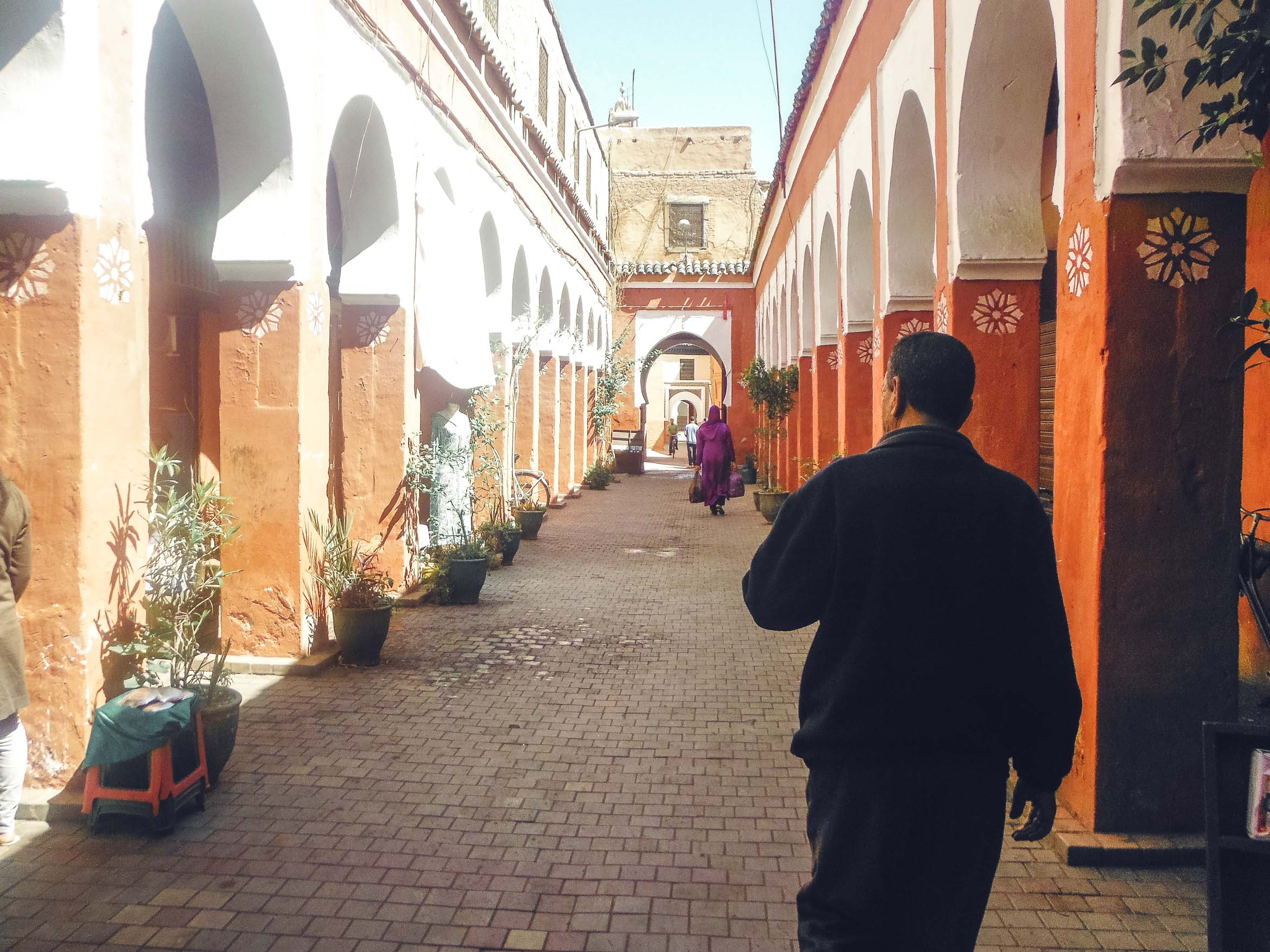
Motorbike snatchers
This scam is present in South East Asia and possibly other countries where motorbikes are widely used. The person on the motorbike or moped will drive past you as you are walking down the street and snatch your bag. They then drive off; with no way you can catch them. To stop this, always walk with your bag placed the opposite side of the road or use a bag with a cross strap.
Overpriced taxis and tuk tuks
This is a common scam aimed at tourists. Taxis will say that their meter is broken or charge expensive fees. Some taxi drivers will have a deal with local restaurants or other places, where they earn a small commission for every customer they bring to the restaurant. When you ask to go somewhere, the taxi driver may tell you that the restaurant you want is closed but they know a better one.
Always make sure you either use an official taxi rank or used a licenced taxi company. It is also worth asking your accommodation for recommended taxi companies and keep those numbers in your phone. If the taxi has no metre, then arrange a price beforehand.
Another taxi trick is that the driver will purposely take the long route, so you end up paying more (if on the metre). If you have your smartphone it is worth bringing up your journey on Google maps (or download offline maps if you have no signal) and telling the driver to go that way.
Tuk tuks are much the same and can charge tourists three times the amount of what a local would pay. Ask your accommodation or a trusted local what the average price of a tuk tuk should be. If the price is too much, then just walk away and find another one. Chances are they will call you back and agree on the original price.
Unsafe Wi-Fi
With everyone wanting to connect to the internet, hackers have found new ways to scam tourists. They will set up an open and free Wi-Fi connection in a public place, and when you have logged on, they can steal your data. Never visit sites that store any personal information, while on a public Wi-Fi, such as logging in to your bank. It is best to use a secure connection (your hotel will likely have Wi-Fi with a password) or use a VPN as a safer option.
Border crossings
This travel scam happened to me on the Poipet Cambodia-Thailand border, when I was crossing by land from Bangkok. After getting off the train from Bangkok, I got on a motorbike taxi where the woman driver took me to a fake border control point. I was aware that this may hap pen after reading about this scam before I visited. I had already bought an e-visa, but she wanted me to buy a visa. The other people at the shop were all wearing uniforms and if I had not known about the scam, I may have been convinced. Instead, I insisted that I didn’t need a visa as I had already bought one online. After a while she got annoyed and took me to the real border crossing.
In this situation, always buy the e-visa beforehand if possible, and if something doesn’t feel right then just keep politely saying ‘no’ or get off and find someone else to take you. Once at the border, stay alert as some places even the officials are even involved in certain scams. Make sure you have your eyes on your passport and that they stamp it correctly. When you are through the border, you may find that many people are offering you transport. Do not feel pressured to make a decision quickly. Look around at the various options first.
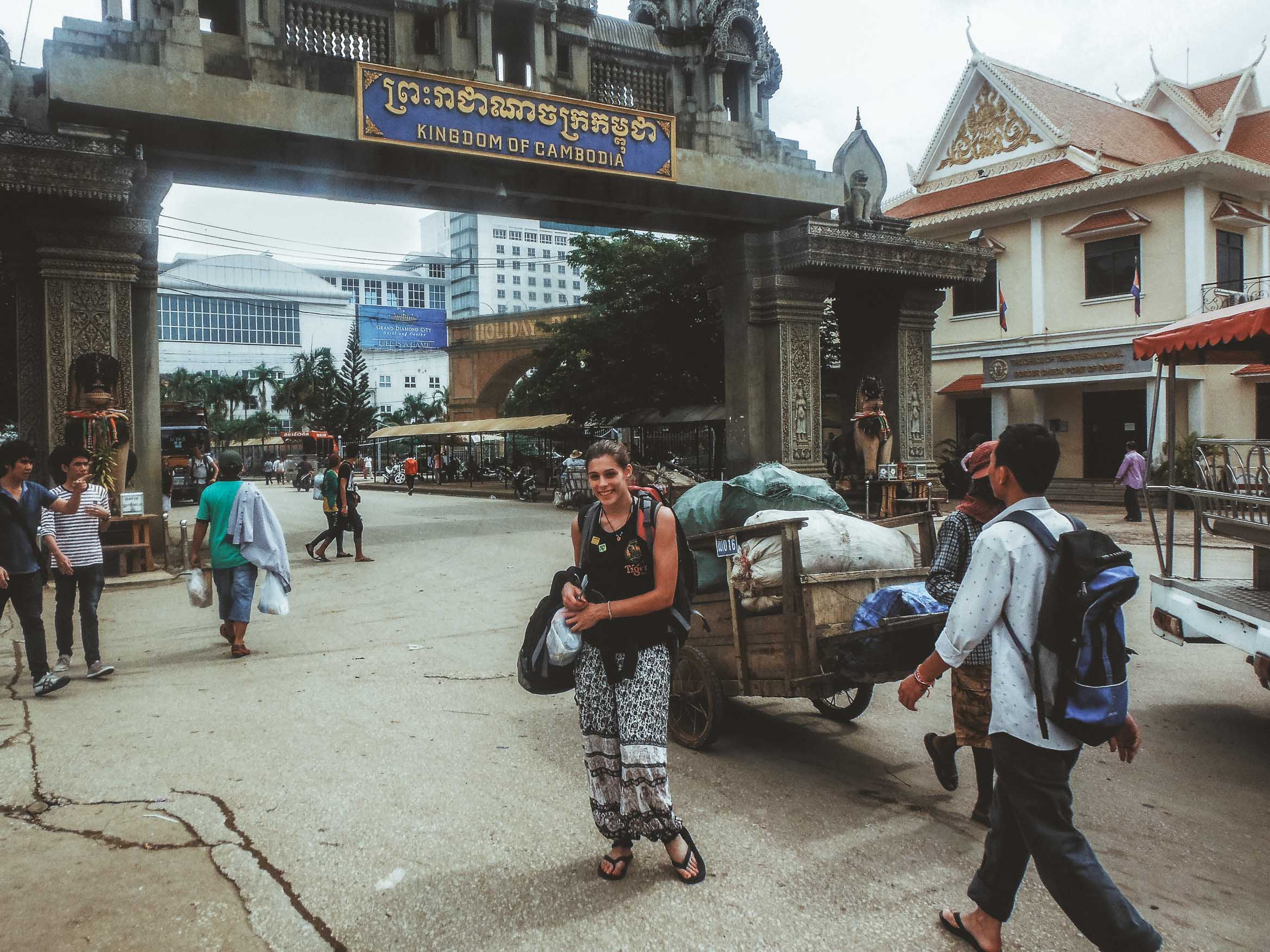
Requesting donations
A common scam in Europe, which will often involve children pretending to be deaf or blind. They will convince you to sign a petition and then demand a donation for a fake charity. Others may also try to pickpocket you whilst you are distracted. To avoid the confrontation, never sign anything and if you do just walk away to a safe place.
| You may like reading: 14 Safety Tips for Solo Female Traveller’s in Sri Lanka |
Baggage bus/train scams
Buses and overnight trains can be easy places for thieves to steal your belongings. From the helpful local who offers to help you with your bags, and then takes off with them, to the person who distracts you whilst someone else tries to steal something from inside you bag. You should also be careful with overnight buses or trains when someone can steal your belongings while you are asleep.
Always keep the most valuable possessions on your person and keep them close to you, especially while you sleep. Buying an anti-theft backpack can also help with an added layer of protection form bag slashers.
Bar travel scams
Always be vigilant when going out at night. For ladies, some places may have dodgy locals or even the barmen themselves who will put something in your drink. This could be so you become drowsy, and they can easily rob you, or for more sinister reasons. Always, always watch the barman pour your drink, and even better buy something that comes with a seal, such a bottle of beer. Never leave your drink unattended, even with any new friends you might have made at your hostel.
Another common bar scam is that an attractive local will be flirtatious, offer to take you to a cool bar, and then at the end of the night, leave you with a large bill. Be aware of this and don’t fall for anyone being overly flirtatious.
Check foreign notes
Always make sure you are aware of the foreign currency’s notes. Some taxi drivers or market stall sellers will try and trick tourists by giving the wrong notes back to them as change or try to swap notes and say that you have not given them enough money. Make sure you know how much you have in your purse and count out the notes in front of the person you are giving them too.
Fake police
This is a common travel scam around the world. Fake police will stop you and demand a fine for whatever reason. Since you are not aware of the rules, you may not realise if this is a real offence or not. These fake police will demand this fine to be paid immediately. Remember that real police will not ask for the fine on the spot. If you find yourself in this situation, then ask for their ID and tell them you will deal with the matter at the police station. This is likely to quickly deter them.
Rental damages
Some tourists have reported hiring a moped and then having it stolen or damaged the next day (done by someone from the place you rented it). When you return it, they will demand high repair fees. Always take photos of the bike (or car) you are renting and use your own locks. It may be wise not to reveal where you are staying, making it harder for them to find you.
Fake monks
You may be approached by a fake monk who will put a ‘Buddhist’ bracelet around your wrist and then ask for a donation. Being a monk, you may be more inclined to pay something as not to appear rude. Do not fall for this. They are not real Buddhist monks, and the real ones would never go around selling things.
Ticket scams
This is quite a common travel scam, where a local (they may be dressed in official looking clothing) will offer cheap bus or train tickets at the station. These could be cheap tickets or even more expensive tickets, targeting those who don’t want to wait in line or are running late for their bus or train. Once bought, the seller will disappear, and you will find that your ticket is not valid. Always buy tickets in advance online or buy at the official ticket booth.
Low priced tours
When booking a tour, make sure it is from a trusted and reputable company. If travelling with a local company, always read reviews and ask your accommodation to recommend a good tour company. Some super cheap tours may sound too good to be true, and they probably are! For example, I heard of some tours to the Bolivian salt flats where the drivers were known drink and drive. You want to make sure you are kept safe and get good value from your tour.
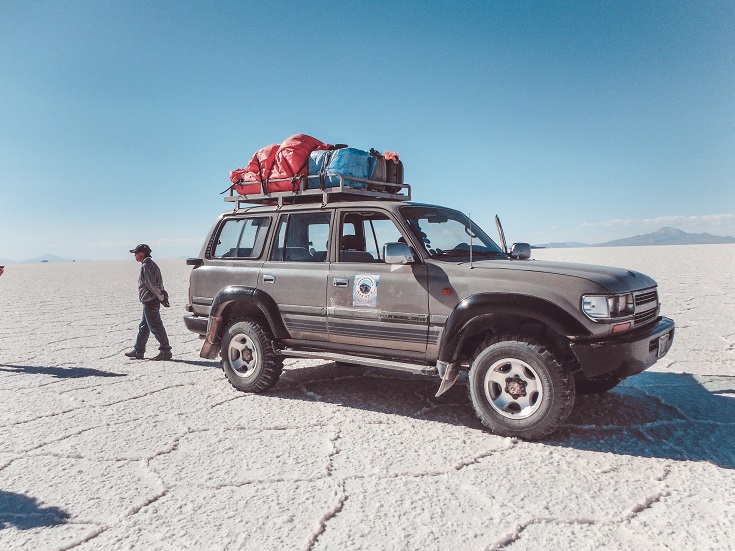
Photo scams
If you are by yourself, or even with a group of friends, someone may approach you, and offer to take your photo. Once they have the camera in their hands, they will run off with your expensive gear. This is one you will need to use your judgement on, but I would say to pick who you want to take the photo, rather than accepting an offer from someone. I always try and pick a tourist, maybe one I can see already has a good camera of their own. If you can’t find anyone then take a selfie!
‘Unique’ souvenirs
You will find all sorts in the market stools and local shops. There will be sellers telling you that this is an authentic hand carved ornament made from local wood, or handmade craft items made by local artists. They may charge a high fee for these items. For example, in the ‘lost tourist’ scam I mentioned, I bought a cheap bracelet from a Moroccan man. Well, I thought at $10 it was an ok deal, until I saw hundreds of them at the local market selling for $1.
ATM travel scams
This scam will usually involve a friendly local trying to help you at the ATM machine. They may try and offer advice to avoid a transaction fee, but what they are really doing is trying to distract you so they can either use a card skimmer (which will store you card number, name, and expiration date), or to watch you as you enter your pin. Of course, always cover your pin number and if you feel uncomfortable by anyone standing too close, take your card and go elsewhere. If you can go into the bank to take out cash, this is even better.
Accommodation is closed
When travelling in a taxi or tuk tuk, the driver may tell you that your accommodation is closed, and they can be pretty insistent about it. They may tell you that they are fully booked or have been closed for a while and offer a better place to take you. This ‘better’ place is likely to be somewhere that they will earn a commission to bring tourists too. Always tell the driver to take you to the place you want to go anyway. If you ask him several times and he still says no, then say you will get out and find a different taxi or tuk tuk. Most likely, he will stop and say that he will now take you there.
Free bracelets or rosemary
A common scam in Europe, a local will be super friendly and offer you a free bracelet or a sprig of rosemary and then tie the bracelet around your wrist before you have a chance to say anything. Then they will demand money from you and cause a scene when you refuse. If you come across this, do not let anyone put anything on your wrist in the first place. If they do put it on you, then take it off and hand its back to them, and then walk away.
Child beggars
Having a poor looking child come up to you and ask for money pulls on the heart strings, and the locals know this. But often these children may be part of a larger gang to collect money for them or they may not be as poor as they say they are. This is a tricky one as there are likely to be genuine beggars out there as well. But if a child is on the streets begging, then they are not attending school, and so the cycle continues.
Try offering to buy food or make a donation to a trustworthy charity instead. I once had a poor looking boy begging me for money in India, when I offered to buy him some food he said ‘no, I want money’ and then walked off. This scam can also involve elderly people, a woman carrying a young baby or injured people. Some may even have an accomplice watching to see where you put your wallet (if you do give them money).
I hope you enjoyed this post, please share on social media to spread the word, and let’s travel safely! (when we can of course!) 😊

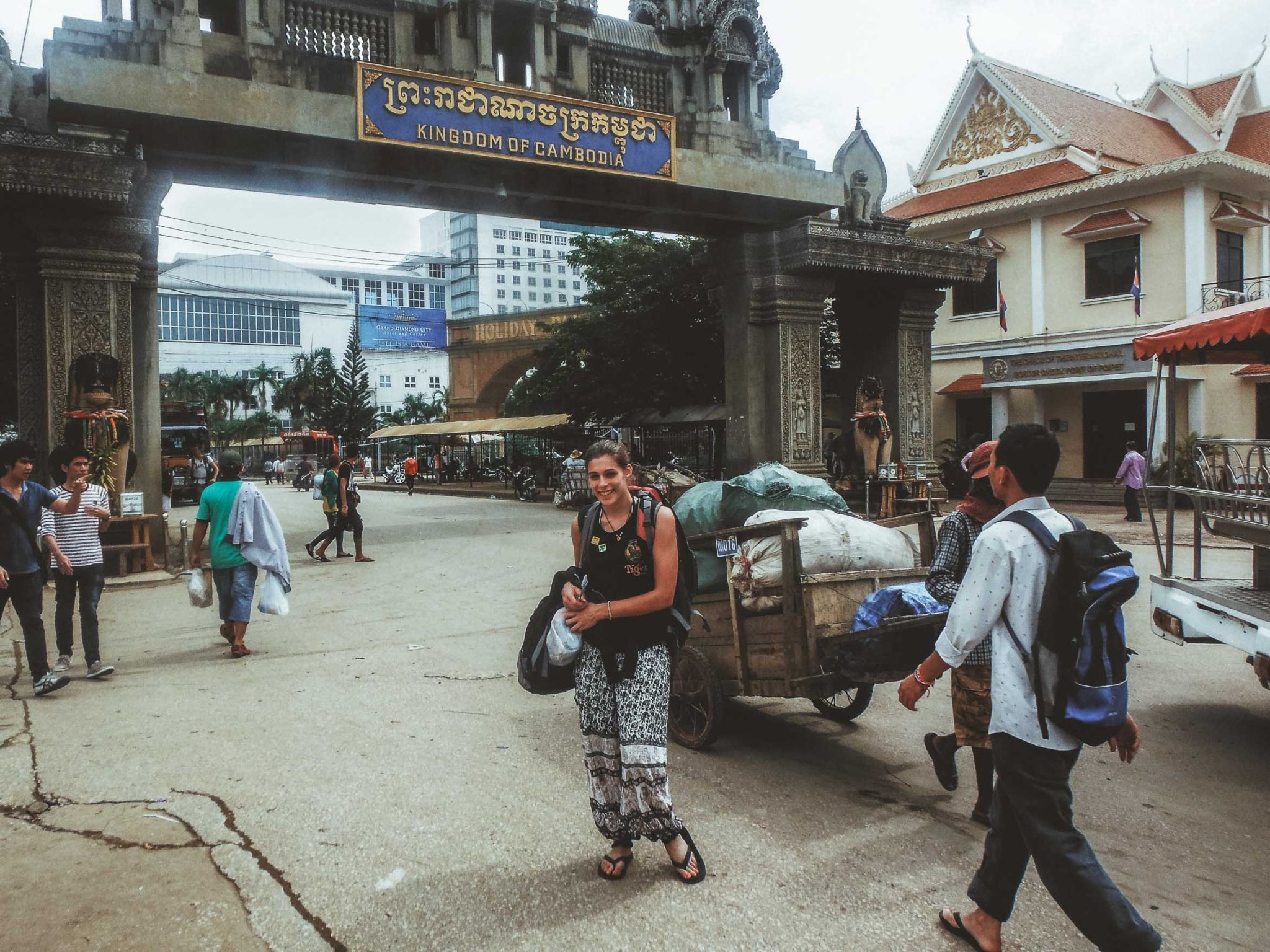

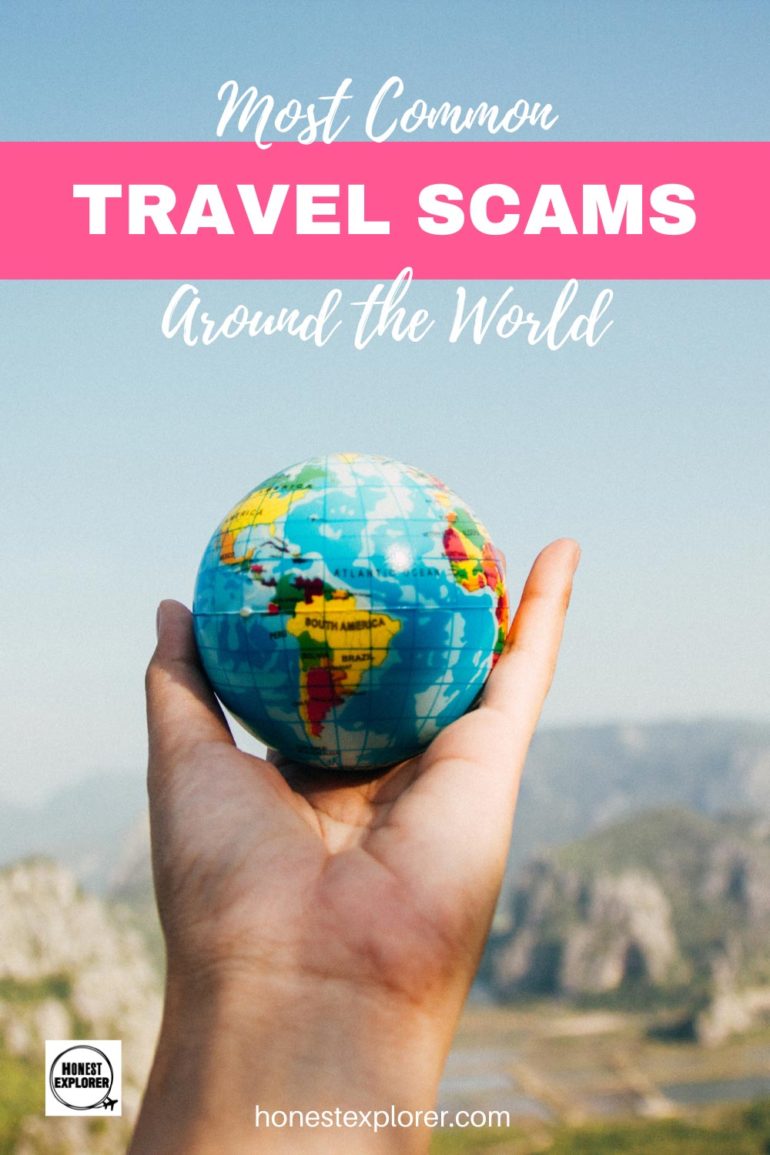
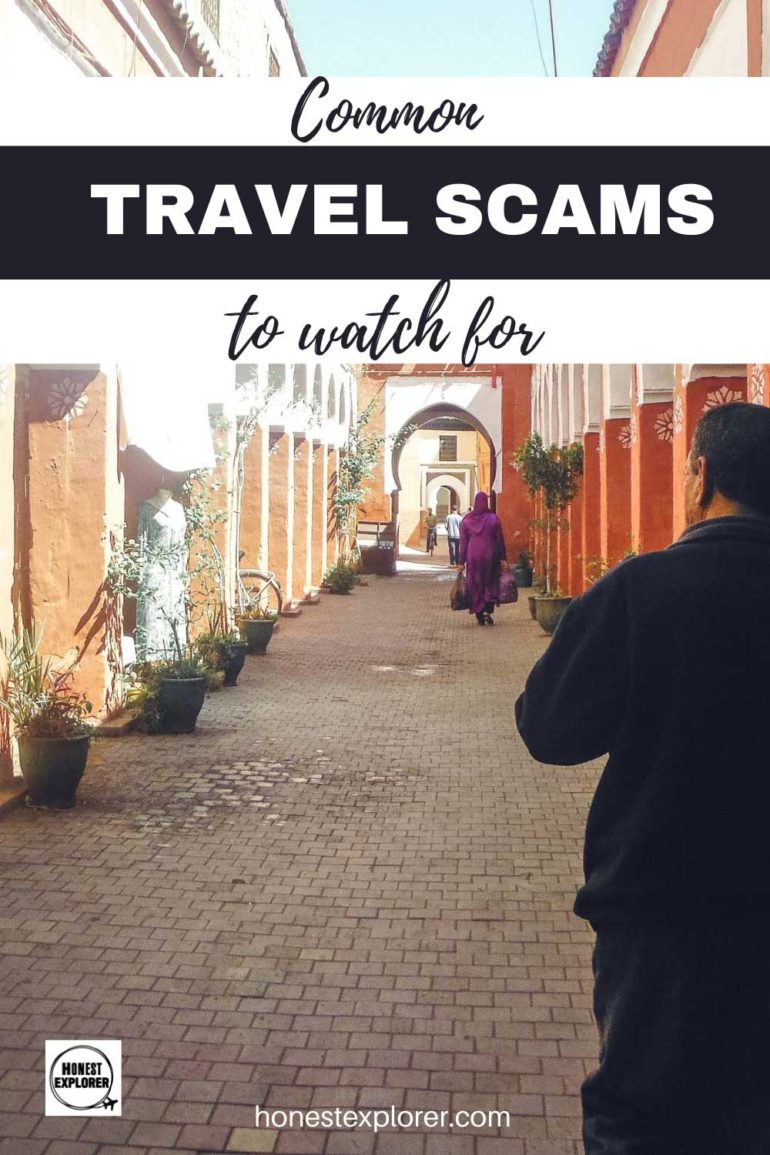





15 Comments
Good list of scams, cause indeed every traveler has a few of these happened to them.
Of course! 🙂
Really good call out with the child scammers. I like the idea of asking for food, and I didn’t even think about taxi cab drivers giving the wrong currency!
Yes there can be a lot of sneaky tricks out there, but if you know about them, it’s harder to fall for it 😉
Thank you for sharing these tips! Getting scammed is one of the fears I have about traveling solo, because there’s no one else to look out for you but yourself. So, it’s a good idea to familiarize yourself with the common scams in a particular place before you go.
Absolutely…. I mean even if you travel with someone else it will still happen. Better to be prepared for it!
I’m always so scared of returning my rental car and being told it’s damaged. I usually take A LOT of photos and videos before leaving the car park.
It’s a good thing to do! 🙂
It’s definitely good to be aware of all these scams. You provided a lot of good tips to avoid the scams and help if they happen. A lot of them are simple like taking photos of your moped rental, but could really save you if someone does try to scam you.
Yes agreed…. if you know how to deal with them, it all seems a bit easier 🙂
thanks for sharing these scams -its so important travelers know these before exploring new places so they don’t get hurt.
Always good to be prepared!
Wow this is so enlightening. It’s crazy how many scams are out there. We were just in Mexico at a local vendor shop in Playa. I kept telling my kids “don’t touch” and the guy kept saying to them “no, it’s ok! You can pick it up!” Well, they listened to me instead of him. Eventually, he backed up into my little girl who hit a shelf and broke a ridiculously overpriced item, which of course he demanded we pay for.
Omg thats awful that he would get the kids involved like that, but unfortuantly not surprising.
Yes, so much to watch out for! Our first time abroad my partner got taken for the bracelet scam. Thankfully after much more travelling, we are much wiser now!